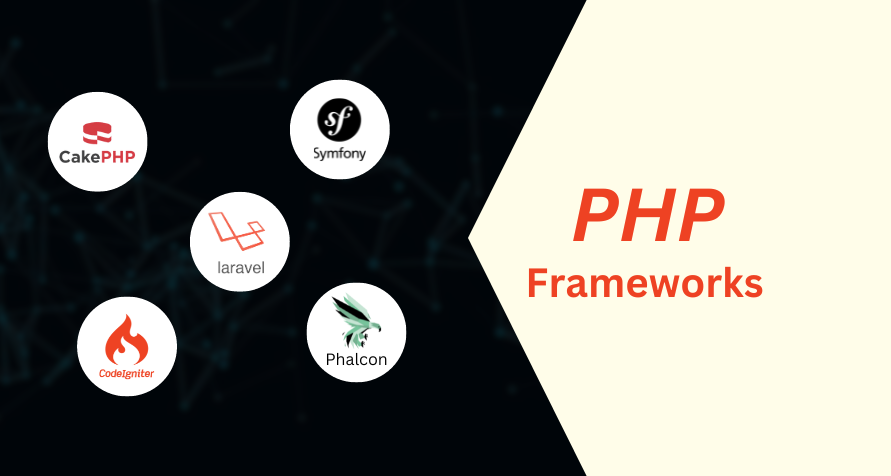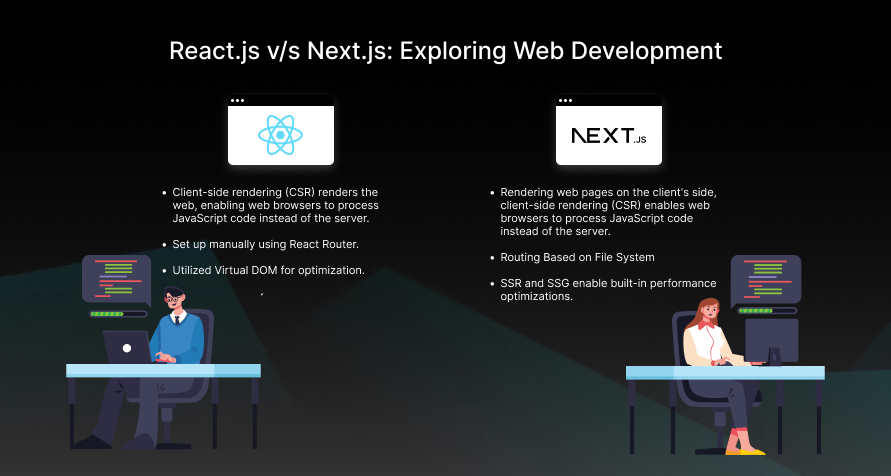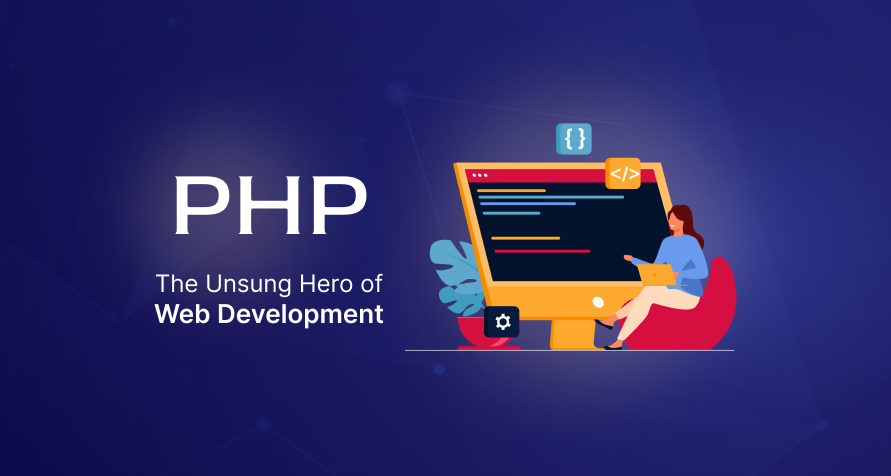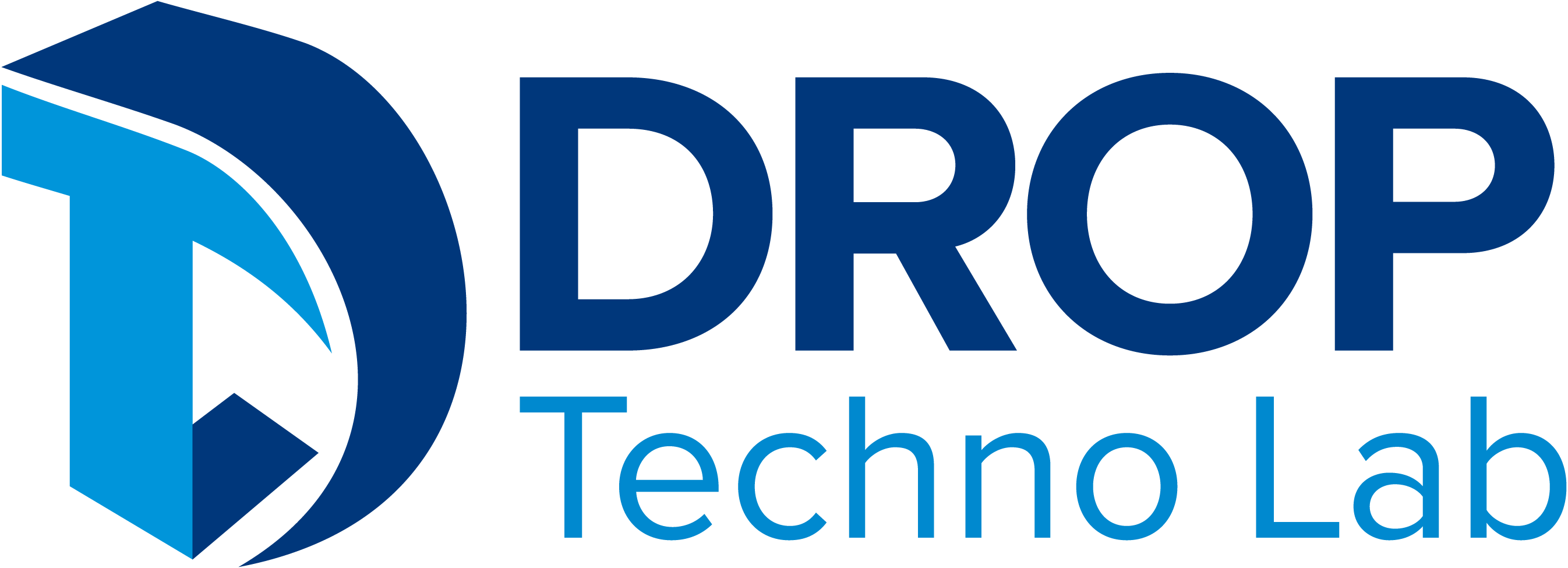This blog will delve into PHP, a foundational language in the expansive web development arena, which serves as the backbone for millions of websites and applications. The sustained popularity of PHP, a language that you, as a web developer, are likely familiar with, is attributed to the vast array of robust frameworks available. These frameworks streamline development processes, promote best practices, and improve code maintainability.
Among these, prominent choices such as Laravel, CodeIgniter, CakePHP, Phalcon, and Symfony offer distinct features and strengths. Understanding these frameworks in depth will provide a comprehensive understanding of their capabilities and ideal use cases and empower you with the knowledge to excel in your PHP skills. But how do you choose the proper framework for your project? Consider factors like [specific factor], [specific factor], and [specific factor] and how each framework aligns with these factors. This empowerment will motivate you to learn and grow in your development journey, knowing your significant role in the web development landscape.
Laravel:
Laravel has gained widespread popularity within the PHP community due to its elegant and expressive syntax and comprehensive feature set. This framework enhances developer productivity by simplifying routing, authentication, caching, and session management tasks.
Laravel, a framework that has found its niche in the PHP community, stands out with its elegant and expressive syntax, comprehensive feature set, and modern PHP practices. Its modular packaging system, Eloquent ORM, and Blade templating engine are not just features but pillars that ensure a smooth and enjoyable development journey. The active and vibrant community you are a part of is always ready to assist, and the comprehensive documentation further enhances its appeal, making it an excellent choice for building robust web applications and APIs. This sense of community and support you are a part of is invaluable in your development journey, making you feel included and supported.
Codelgniter:
CodeIgniter is a highly regarded PHP framework known for its lightweight and robust nature. It is widely appreciated for its simplicity and small footprint, making it a popular choice among developers. One of its key strengths lies in its Model-View-Controller (MVC) architecture, which ensures excellent performance and flexibility, making it suitable for projects of varying complexities and sizes.
Despite its minimalist approach, CodeIgniter has essential features such as database abstraction, form validation, and robust security measures. This enables developers like you to build secure and reliable web applications efficiently. Its straightforward configuration and comprehensive documentation make it an excellent choice for beginners and experienced developers. Whether starting a new project or maintaining legacy applications, CodeIgniter instills confidence in developers like you due to its ease of use and reliable performance. This reassurance about the simplicity and reliability of CodeIgniter will make you feel confident and secure in your development journey.
CakePHP:
CakePHP has earned a strong reputation for expediting development and facilitating scalability, making it the top choice for creating enterprise-grade applications. By embracing the convention over configuration principle, CakePHP effectively reduces the need for repetitive code, allowing developers to concentrate on core business logic.
The framework has various built-in features, such as database access, caching, and scaffolding, which streamline the development process while maintaining flexibility. CakePHP’s robust focus on security and backward compatibility further cements its status as a reliable framework for high-stakes projects.
Phalcon:
Phalcon stands out from traditional PHP frameworks due to its innovative architecture. It’s written in C and distributed as a C extension, resulting in exceptional performance and efficiency. Despite its speed, Phalcon maintains a familiar Model-View-Controller (MVC) architecture and provides essential components for web development.
Its low-level architecture empowers developers to control application behavior while minimizing overhead directly. While it may have a steeper learning curve than other frameworks, its performance benefits and rich feature set make it an excellent choice for developing high-performance applications.
Symfony:
Symfony is widely recognized as a top-tier web application framework, celebrated for its remarkable stability, flexibility, and extensibility. It is the framework for developing even the most intricate web applications and content management systems. Symfony is unique because it comprises decoupled components, providing developers precise control over application architecture and facilitating efficient code reuse.
The framework’s robust ecosystem includes Symfony Flex, which effectively manages dependencies, and Symfony Console, which enables the creating of command-line applications catering to a wide range of use cases. Symfony’s steadfast adherence to best practices, comprehensive documentation, and enterprise support firmly establishes it as the preferred solution for projects requiring scalability and maintainability.
Conclusion:
In conclusion, DTL provides a comprehensive overview of PHP frameworks, enabling developers to make well-informed choices tailored to their project needs. With expertise in Laravel, CodeIgniter, CakePHP, Phalcon, and Symfony, DTL offers all-encompassing services for every development requirement. With this knowledge, developers can confidently embark on their web development journey, supported by DTL’s commitment to excellence and innovation.










